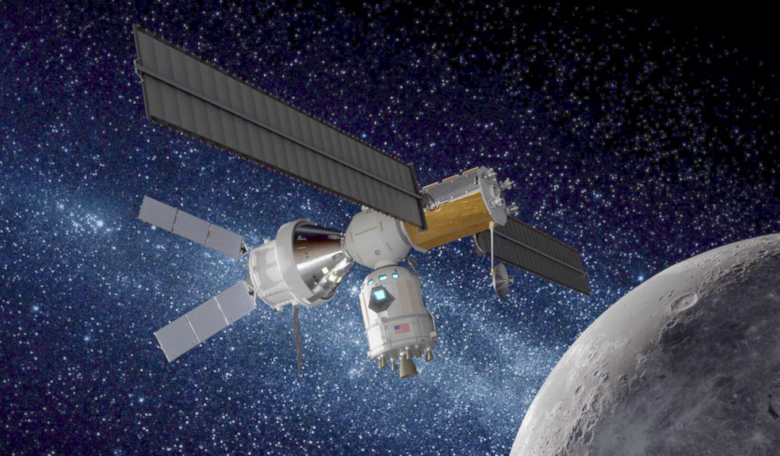Russia wants to collaborate on NASA's plan for a Moon-orbiting space station known as the Lunar Gateway but needs to firm up its own lunar exploration plans before committing to how Russia would take part.
Sergey Krikalev, executive director for piloted spaceflights for the Russian space agency Roscosmos, shared a laugh over the question posed on social media and delivered by Pascale Ehrenfreund, incoming president of the International Astronautical Federation (IAF), during a panel talk by heads from several space agencies on the opening day of the International Astronautical Congress (IAC) in Washington, DC this week.
NASA hopes to launch a portion of the Gateway as part of the Trump administration's goal to speed up the next human landing on the Moon by four years, from 2028 to 2024. Astronauts would travel from Earth to the Gateway and dock, then ride in a separate lander to the Moon's surface.
Krikalev said Russia intends to continue working with its partners as it has on the International Space Station (ISS).
"We are planning to participate in Gateway. We don't have a final decision how - or which way," Krikalev said.
"And, of course, we will develop our own national programme," he said. "So we need to clarify what we want to do with Russia's programme and see how this programme will be joined together with Gateway."
Canada intends to continue its participation as well, contributing a robotic arm that Canadian Space Agency president Sylvain Laporte fondly referred to as "Canadarm 3", after its predecessors on the NASA Space Shuttles and the ISS.
The Trump administration - including NASA administrator Jim Bridenstine - have asked the US Congress to start funding the accelerated exploration campaign as part of the current federal budget negotiations. The outcome remains to be seen, but NASA was already planning to build the Gateway with international partners for the 2028 goal and has awarded a contract to build the Gateway's power and propulsion element.
Canada's Laporte is eager for lunar exploration to break new ground in governance, anticipating a "discovery period”.
"I think this new venture that we're engaging in is hopefully going to get us into new conversations, into new areas - new areas of law and new areas of how humankind, you know, sort of regulates itself as we go forward," Laporte said.
Bridenstine said accelerating a Moon landing would help people get to Mars faster. With the Moon mission complete by 2024, he thinks a Mars landing could happen as soon as 2035.
As plans for the Gateway proceed, the international partners are also considering what will happen to the ISS.
"It is important to know what comes next," the US Bridestine told reporters in a press conference that followed the panel. "We know the ISS will not last forever. We need to be thinking about what comes next." The Trump administration has floated the idea of ending US support of the ISS after 2024.
Russia's Krikalev, however, was concerned about the ramifications. "If we are going to stay in low Earth orbit, then ISS is the most efficient way to do this," he said.











